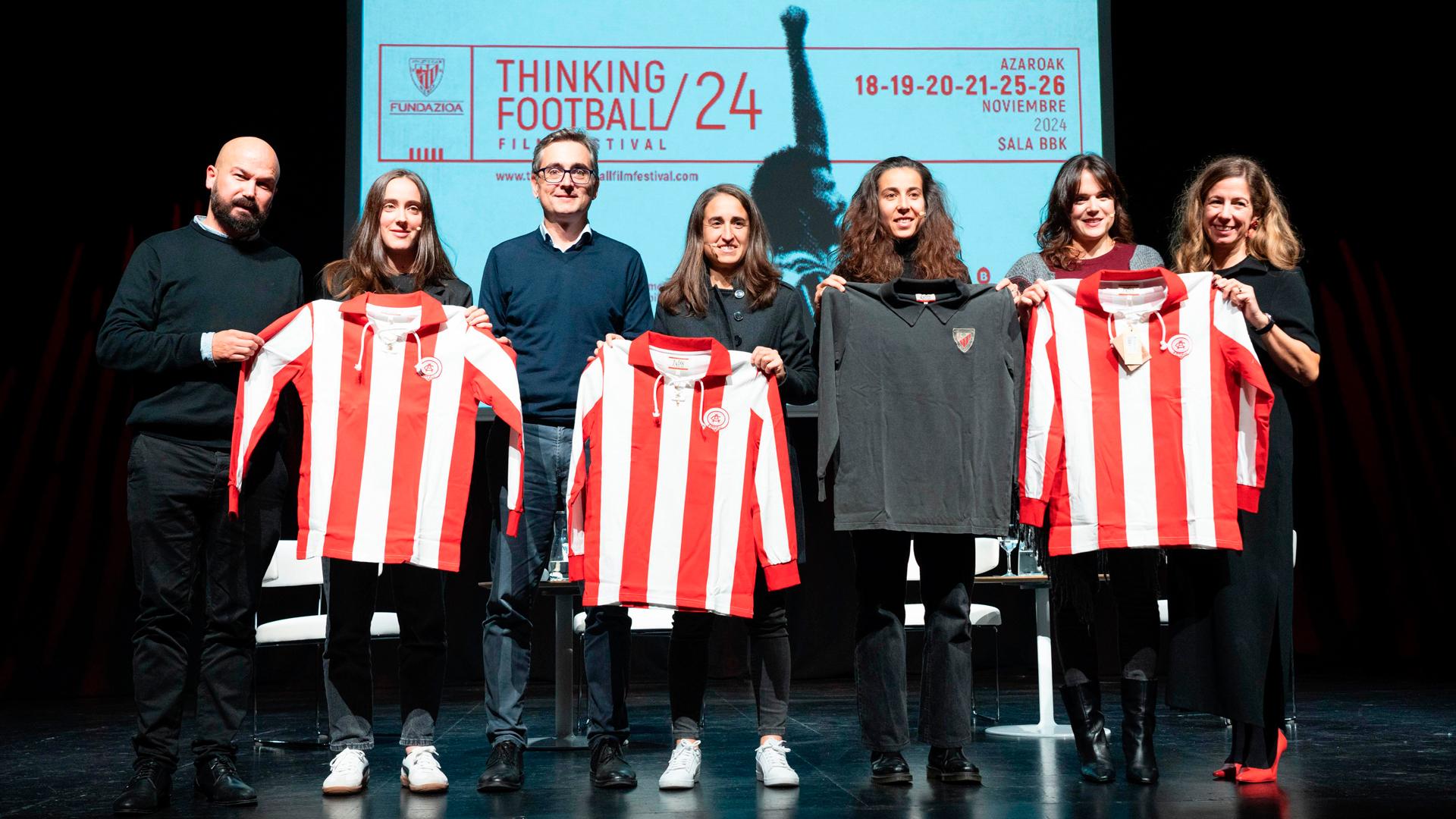
Football as a tool to promote gender equality
Football as a tool to promote gender equality
The second day of Thinking Football featured two films that tell the stories of women who struggle to access spaces that have been historically denied to them
The underlying social focus of the Athletic Club Foundation's film festival programme had two excellent examples on Tuesday. In general terms, the theme can be summarised as gender equality.
The films screened address this issue through two very different stories but with a common spirit: the moral duty for women to enjoy with absolute equality spaces that have been systematically denied to them.
‘The Football Aficionado’, a film co-directed by Sharmin Mojtahedzadeh and Paliz Khoshdel, who were both present at the Sala BBK, depicted the inconceivable marginalisation suffered by women in Iran and their difficulty in gaining access to stadiums. In this context of discrimination, football emerged as a tool to demand gender equality.
After this first session, the main event of the evening was ‘Copa 71’, a documentary that revisits a forgotten World Cup, one played by the women's national teams of England, Argentina, Mexico, France, Denmark and Italy in Mexico City.
Despite the fact the championship brought together hundreds of thousands of people and was an unprecedented success, it has been historically shunned and neglected. The documentary demonstrates how this lack of historical recognition is another obstacle to gender equality.
Zurigorri legends Iraia Iturregi and Ainhoa Tirapu, accompanied by current first team player Marta Unzué, talked about this incredible story of 'Copa 71’ in a post-screening discussion.
"There is still a lot to do. Throughout history we have been excluded from football twice, so we have not been able to grow at the same pace as men's football," Tirapu pointed out in reference to the banning of women's football after the World Cup in Mexico.
Iraia Iturregi stressed that "women need more opportunities in management positions and we need to take advantage of sporting successes to sell the product that women's football represents".
Marta Unzué expressed her confidence in the potential of women's football. She said: ‘On a physical level we're very different, but they're also different spectacles. Women's football, with its characteristics, is also a very attractive spectacle."
Wednesday: “Campos”, “Greenland: Santa Cruz del Islote” and “Colombia: Road to Glory”, with Pacho Maturana in attendance
At 18:00 CET, we'll be showing "Campos". Using football pitches as a backdrop, the directors tell the stories of the people living in ‘empty Spain’. Through different aspects, they show how rural football brings communities together.
The 20:00 CET slot begins with the ESPN short film ‘Greenland: Santa Cruz del Islote’. It is a part of wider series exploring places where it seems impossible to play football.
This will be followed by the evening's main feature, "Colombia: Road to Glory", with Francisco ‘Pacho’ Maturana attending as guest of honour. Colombia, the great favourites to win World Cup 94, collapsed in the United States due to external pressures and serious threats from the Colombian cartels.
